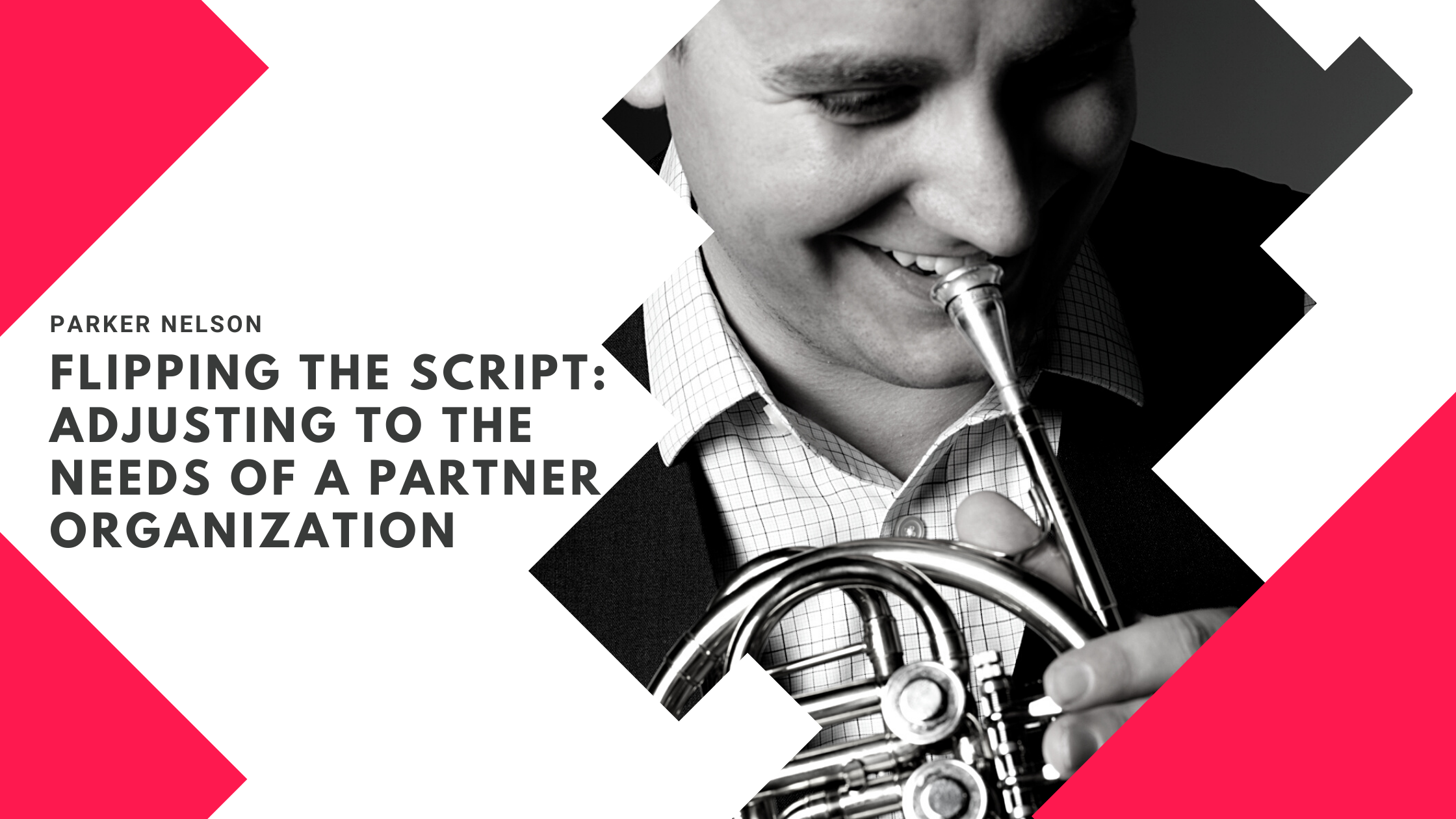Flipping the Script: Adjusting to the Needs of a Partner Organization
For anyone that has been following Fifth House Ensemble (or any arts organization, for that matter) through the 2020-2021 season, you’ve undoubtedly heard or read the word “flexibility” quite a bit. That’s no surprise, given that our way of making art has changed drastically during the COVID-19 pandemic. Luckily, Fifth House didn’t need to build new organizational habits from the ground up. Following findings from Fifth House’s research partnership with our friends at Loyola University of Chicago’s Center for Urban Research and Learning (CURL), we’ve been tracking flexibility as a key trait of our teaching artistry for nearly six years. That emphasis has made all the difference this year, especially for one of our longest-running social service partnerships: our residency program at Ignite.
Ignite is a non-profit organization that has supported and strengthened Chicago’s most vulnerable young people for nearly forty years. They are the only agency in the city to focus solely on 14-24 year olds who are experiencing homelessness and offer comprehensive year-round services to address everything from emergency needs, housing, education, job readiness, and embracing a healthy lifestyle. Fifth House Ensemble’s programming at Ignite has traditionally been focused around digital music composition and live recording, using programs like Ableton to take advantage of the studio and technology available at Ignite’s Belfort House site. In the 2020-2021 season, we planned to redesign our previous eight-week program model from past seasons to year-round weekly visits. This shift was then moved to digital content due to the pandemic. We had recently moved our summer chamber music program, Fresh Inc Festival, to a fully digital experience and gained more knowledge about remote recording and audio/video editing. Using the online Digital Audio Workstation BandLab, Ignite clients would compose original pieces by documenting short sounds found at Belfort House. Additionally, we would introduce Deep Listening concepts that would allow music mindfulness activities to shape the ways in which students interacted with their environment. The plan was set, the residency designed, marketing materials made, and the staff at Ignite and Fifth House prepared for the new residency program. The only missing piece was the clients.
After working with Ignite staff to gather interest from clients to attend the program, we were ready to start the program. However, the weeks following brought multiple visits of minimal participation. Working with only three-four client participants made it more than apparent that something wasn’t working. This was disheartening for many reasons, though mostly because watching creativity blossom from Ignite clients is one of the most rewarding parts of the residency process. Attempts to garner interest in the program with more conversations and monetary incentives yielded no change, and some sessions were cancelled because no one attended. Thankfully, the staff at Ignite was willing to meet with us and inform us about some of the challenges they were observing in all of their virtual programming. A special thank you goes to Director of Residential Programs Doug Mowery, Senior Director of Programs Paviella Foster, and Case Manager Intern Sam Brownson.
Some of the discoveries we made in talking with Ignite staff were:
Clients didn’t know who Fifth House musicians were and didn’t exhibit the same curiosity as when we were able to play our instruments at Belfort House in-person. The ability for musicians to be recognized and become a part of the Belfort House community was crucial in building participation in the past.
Clients were burned out, like many of us, from video chat services - particularly when they had been using it for work or school all day prior to our 4pm start time.
Clients didn’t have the mental energy to start a creative project from scratch. The stress of the COVID-19 pandemic and a tense political climate around the 2020 US Presidential election kept a majority of clients in their rooms. Ignite staff noted that participation in all programs was low. Only the in-person programs held by Ignite staff had regular attendance.
These insights, as well as a greater understanding of Ignite’s iSkills program that explores life skills such as mindfulness, nutrition, diet and exercise, financial independence, job readiness training and more, helped Fifth House found a new integration window. In collaboration with Sam Browson, the leader of iSkills, Fifth House prepared a new curriculum that integrated Deep Listening practice and, for the first time ever, Fresh Inc Festival workshop material. Fresh Inc. workshops are designed for participants of the festival - performers, composers, and pre-formed ensembles - looking to envision and launch their own authentic careers in music, rooted in adventurous genre-defying collaboration, entrepreneurial thinking, and meaningful partnerships with audiences and community. The materials from these workshops that highlight unique pathways to employment, like public speaking and personal promotion, transferred perfectly to this new residency plan for Ignite clients. In addition to these changes, Fifth House now also provides a weekly Deep Listening score distributed by Ignite staff. Should clients want to learn more, they can try these text-based musical compositions and exercises on their own. If they want more support, there is an opportunity to practice the score as a group in the next iSkills session. Time is split between Sam and Fifth House Ensemble teaching artists during the 60-minute weekly sessions.
Fifth House kicked off this new programming with a special concert presented by Sixto Franco, Elizandro Garcia-Montoya, and myself, featuring solo works for viola, clarinet, and horn respectively. The concert was connected to the television in the Belfort House communal space so that anyone passing by would be able to stop and listen or ask musicians questions about their instruments or our upcoming programming goals.
The Results (so far…)
At present, this program is ongoing, and yet there are some remarkable changes to the observable effectiveness of the program since the curriculum shift:
Fifth House teaching artists participate in the iSkills curriculum alongside the Ignite clients and have become more connected to the Ignite community.
Deep Listening activities and scores are framed in more relatable ways, boosting both participation and discussion about their applications outside of the weekly sessions.
Attendance and participation have improved immensely. From a metrics standpoint, we’re well over a 400% increase in both categories.
Working with Ignite clients is always a rewarding experience. This is a group of extremely talented and passionate young people who we love to stay in touch with, even after residency programs have concluded. I think it’s easy to relish successes of past composition residencies, and, while we look back fondly on those projects, learning and growing with new clients with new challenges and needs has led to opportunities for the use of music to promote personal growth - for both facilitators and participants. I believe that music has the ability to change lives, and thanks to the support of ignite leadership, staff, and of course, clients, this residency has been one of the most life-changing musical experiences in recent memory. Thank you to the entire Ignite community for their continued support of Fifth House Ensemble’s work!
Fifth House Ensemble’s educational programs and research initiatives are supported in part by the Paul M. Angell Family Foundation, the Albert Pick Jr. Fund, Chamber Music America, the Farny R. Wurlitzer Fund, and by a grant from the Illinois Arts Council Agency.

